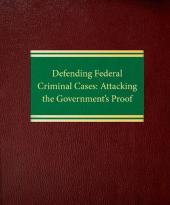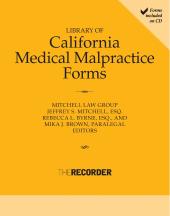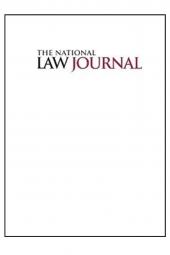Defending Federal Criminal Cases: Attacking the Government's Proof
Select a format
 International Order Inquiry
International Order Inquiry
Select subscription type
Terms & conditions
Subscribers receive the product(s) listed on the Order Form and any Updates made available during the annual subscription period. Shipping and handling fees are not included in the annual price.
Subscribers are advised of the number of Updates that were made to the particular publication the prior year. The number of Updates may vary due to developments in the law and other publishing issues, but subscribers may use this as a rough estimate of future shipments. Subscribers may call Customer Support at 800-833-9844 for additional information.
Subscribers may cancel this subscription by: calling Customer Support at 800-833-9844; emailing customer.support@lexisnexis.com; or returning the invoice marked "CANCEL".
If subscribers cancel within 30 days after the product is ordered or received and return the product at their expense, then they will receive a full credit of the price for the annual subscription.
If subscribers cancel between 31 and 60 days after the invoice date and return the product at their expense, then they will receive a 5/6th credit of the price for the annual subscription. No credit will be given for cancellations more than 60 days after the invoice date. To receive any credit, subscriber must return all product(s) shipped during the year at their expense within the applicable cancellation period listed above.
The total price includes the product(s) listed in the Order Form and any Updates for a limited period (minimum period of 30 days) after the order is placed ("Order Window"). Shipping and handling fees are not included in the grand total price.
All shipments may be returned, at subscribers' expense, for full credit of the Price within 30 days of receipt.
Shipments may not be returned, and no credits will be issued, more than 30 days after receipt.
After the Order Window, subscribers will receive notice of Updates along with the then-current grand total price and order process as Updates become available. Subscribers will only be shipped those Updates they specifically request.
Product description
Put the prosecution on the defensive! Defending Federal Criminal Cases: Attacking the Government's Proof equips defense attorneys with the legal arguments and tactics they can and should use to challenge the government's evidence at every stage of a criminal case.
Beginning with the assessment of whether to cooperate with the government, this authoritative guide provides advice on the substance and timing of defense motions, objections and appeals, as well as open questions and splits among the circuits. Coverage includes: bases for motions to dismiss indictments; obtaining and drafting a Bill of Particulars; Fourth and Fifth Amendment grounds for suppressing evidence; Sixth Amendment rights, including the defendant's right to a speedy trial, confrontation of witnesses, and adequate representation; discovery issues, including the prosecution's obligations under Brady; proven methods for cross-examining government witnesses; capitalizing on perjury by government witnesses; objections based on substantive and procedural due process; and more.
Focused on the needs of practitioners, this book examines a wide range of motions to file and how you can assert them effectively. Defending Federal Criminal Cases: Attacking the Government's Proof will greatly increase your chances of winning at trial or creating a record for a successful appeal.
eBooks, CDs, downloadable content, and software purchases are noncancelable, nonrefundable and nonreturnable. Click here for more information about LexisNexis eBooks. The eBook versions of this title may feature links to Lexis+® for further legal research options. A valid subscription to Lexis+® is required to access this content.
Table of contents
CHAPTER 1
Introduction: A Constitutional Framework and Evolving Issues
CHAPTER 1A
Representation Prior to Indictment
CHAPTER 2
Bills of Particular
CHAPTER 3
Motions: Bail, Dismissal, Venue, Suppression, and Severance
CHAPTER 4
Government Disclosure Pursuant To Rule 16 and 18 U.S.C. § 3500
CHAPTER 5
Disclosure Pursuant to Brady v. Maryland
CHAPTER 6
The Right to Cross-Examine Government Witnesses: Crawford and Beyond
CHAPTER 7
Tools for Attacking Typical Government Witnesses
CHAPTER 8
False Testimony by Government Witnesses
CHAPTER 9
The Fifth Amendment Right to Due Process
Index
 Lexis Nexis
Lexis Nexis 


